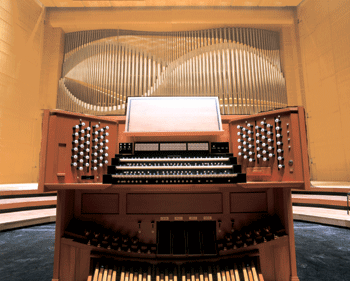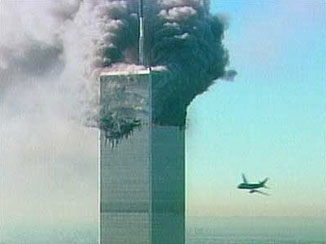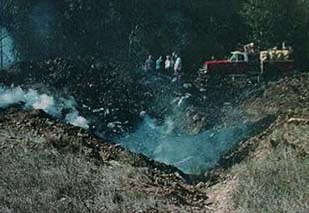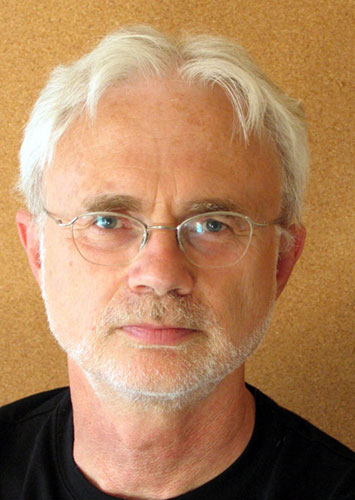The Well-Tempered Ear
Classical music: The Choir of Trinity College Cambridge sings a varied program with organ accompaniment this Wednesday night in Overture Hall
Leave a Comment
IF YOU LIKE A CERTAIN BLOG POST, PLEASE SPREAD THE WORD. FORWARD A LINK TO IT OR, SHARE IT or TAG IT (not just “Like” it) ON FACEBOOK. Performers can use the extra exposure to draw potential audience members to an event. And you might even attract new readers and subscribers to the blog.
By Jacob Stockinger
The new season of the popular Overture Concert Organ series, sponsored by the Madison Symphony Orchestra and curated by MSO organist Greg Zelek, begins this Wednesday night, Sept. 11, at 7:30 p.m. in Overture Hall.
All single tickets are $20. (A subscription to all four organ concerts is $63.)
The opening program features the world-famous Choir of Trinity College Cambridge (below), on tour from its home in the United Kingdom.
Adds Zelek:
“Our season opens with the amazing Choir of Trinity College Cambridge, named by Gramophone Magazine as one of the best choirs in the world.
“Conducted by the choir’s music director Stephen Layton (below top) and accompanied on the mighty Klais concert organ (below bottom), this 25-voice choir will present a program of music spanning many centuries that will display its beauty of tone and depth of feeling. These rich voices will make this varied program soar through Overture Hall and leave everyone in the audience breathless.”
Here are some sample reviews:
Virtuoso is the right word. I, for one, can’t immediately think of any more appropriate way of describing singing of such staggering accomplishment. – BBC Music Magazine
Sitting front and center at a recent Trinity Choir of Cambridge concert at Grace Cathedral was, sonically speaking, a heavenly experience. -The New York Times
Here is Wednesday night’s eclectic program:
William Byrd | Sing joyfully
William Byrd | O Lord, make thy servant, Elizabeth
Thomas Tallis | Salvator mundi
Henry Purcell | Thou knowest, Lord
Arvo Part | Bogoroditse Djévo
John Tavener | Mother of God, here I stand
Vasily Kalinnikov | Bogoroditse Djevo
Robert Parsons | Ave Maria
Eriks Esenvalds | The Heavens’ Flock (You can hear a different Esenvalds work, “Only in Sleep,” sung by the Trinity College Choir, in the YouTube video at the bottom.)
Morten Lauridsen | O magnum mysterium
Jaakko Mantyjarvi | Stuttgarter Psalmen
Herbert Howells | Take him, earth, for cherishing
Herbert Howells | Trinity St. Paul’s
For more information about the Overture Organ Series, detailed background about the Trinity College Choir and how to purchase tickets, call (608) 258-4141 or go to: https://madisonsymphony.org/concerts-events/overture-concert-organ-performances/ or https://madisonsymphony.org/event/organ-trinity-choir/
Tags: #ArvoPärt, #AveMaria, #BBCMusicMagazine, #BlogPost, #BlogPosting, #CambridgeUniversity, #ChoirofTrinityCollegeCambridge, #ChoralDirector, #ChoralMusic, #ConcertOrgan, #DepthofFeeling, #EnglishComposer, #EriksEsenvalds, #FacebookPost, #FacebookPosting, #GraceCathedral, #GramophoneMagazine, #GreatBritain, #GregZelek, #HenryPurcell, #HerbertHowells, #HomeWebsite, #JaakkoMantyvari, #JohnTavener, #KlaisOrgan, #KlaisOrgelbau, #LIturgicalMusic, #MadisonSymphonyOrchestra, #MortenLauridsen, #MotherofGod, #MusicDirector, #MusicReview, #NewMusic, #OMagnumMysterium, #OrganMusic, #OvertureCenter, #OvertureHall, #OvertureOrganSeries, #RobertParsons, #SacredMusic, #September11, #StephenLayton, #SubscriptionConcert, #SubscriptionTicket, #TheNewYorkTImes, #ThomasTallis, #TonalBeauty, #TrinityCollege, #UnitedKingdom, #VasilyKalinnikov, #VocalMusic, #Wednesdaynight, #WilliamByrd, #World-famous, #YouTubevideo, accomplishment, amazing, Arvo Part, audience, Ave Maria, BBC, BBC Music Magazine, beauty, best, blog, breathless, Cambridge University, cathedral, Catholic, centuries, Choir, Choir of Trinity College Cambridge, choral director, choral music, Classical music, classicalmusic, composer, concert organ, curate, depth, depth of feeling, describe, detail, director, Earth, eclectic, England, English, Eriks Esenvalds, everyone, experience, Facebook, famous, feeling, flock, forward, God, grace, Grace Cathedral, Gramophone, Gramophone (magazine), Great Britain, Greg Zelek, heaven, heavenly, Henry Purcell, Herbert Howells, Home, information, Jaakko Mantyvari, John Tavener, Joy, joyful, like, link, liturgical, liturgical music, Lord, Madison Symphony Orchestra, Morten Lauridsen, Mother, Mother of God, Music, Music director, music review, new, New Music, night, O magnum mysterium, opening, organ, organ music, organist, Overture Center, Overture Concert Organ, Overture Hall, Overture Organ Series, performer, popular, post, posting, program, Protestant, psalm, reader, review, rich, Robert Parsons, sacred music, savior, Season, Sept. 11, September 11, series, servant, share, sing, singer, Singing, single, Sleep, soar, sonic, St. Paul, staggering, Stephen Layton, Stuttgart, subscriber, subscription, tag, The New York Times, Thomas Tallis, ticket, tonal beauty, tone, tour, Trinity College, U.K., UK, United Kingdom, Vasily Kalinnikov, video, virtuoso, vocal music, voices, Website, Wednesday, William Byrd, world, YouTube
Classical music: Today is Sept. 11. What music would you listen to, to commemorate the terrorist attacks on that day
3 Comments
By Jacob Stockinger
The news today will be filled with Hurricane Irma, Hurricane José and Hurricane Harvey as well as the wildfires raging out west.
But today is also Sept. 11, 2017.
That makes today the 16th anniversary of the deadly terrorist attacks on the World Trade Center in the Twin Towers in New York City (below top); the Pentagon in Virginia, close to Washington, D.C. (below middle); and that thwarted hijacking of United Airlines Flight 93, which passengers forced to crash in a field in Pennsylvania (below bottom) before it could reach the Capitol or White House.
During the September 11 attacks, 2,996 people were killed and more than 6,000 others wounded. These immediate deaths included 265 on the four planes (including the 19 terrorists), 2,606 in the World Trade Center and in the surrounding area, and 125 at the Pentagon.
A lot of music could be played to mark the occasion.
At bottom, in a YouTube video, is “On the Transmigration of Souls,” a piece by the American composer John Adams that was commissioned by the New York Philharmonic specifically to mark the event. It ended up winning a Pulitzer Prize.
It uses both an orchestra and a chorus, and it incorporates voices and sounds, actual recordings and tapes, from the events of that day. It all makes for a moving tribute.
But other music, in smaller forms and in many other styles, would also be appropriate.
What piece would you suggest?
Tags: 9-11, 9/11, American, anniversary, appropriate, Arts, Capitol, choral music, chorus, Classical music, commission, Compact Disc, composer, crash, D.C., deadly, death, Flight 93, Harvey, hijacking, Hurricane, Hurricane Harvey, Hurricane Irma, Hurricane José, Irma, Jacob Stockinger, Madison, Music, New York City, news, On the Transmigration of Souls, Orchestra, Pennsylvania, Pentagon, Pulitzer Prize, recording, reports, Sept. 11, soul, symphony, tape, terror, terrorism, tourist attack, tribute, Twin Towers, United Airlines, United States, University of Wisconsin-Madison School of Music, University of Wisconsin–Madison, Viola, Violin, Virginia, voices, Washington, west, White House, wildfire, Wisconsin, World Trade Center, wounded, YouTube
Classical music: Here is music to mark today’s 15th anniversary of the terrorist attacks of 9/11
2 Comments
By Jacob Stockinger
Today is the 15th anniversary of the terrorist attacks on Sept. 11, 2001.
A lot of classical music – requiems, symphonies, chamber music, solo works – could be used to commemorate the event. You can leave your own suggestions in the COMMENT section.
But The Ear wants to post something specific to the anniversary – something well known and something relatively unknown.
First the well known work:
Here is a slide show with the music “On the Transmigration of Souls,” by the American composer John Adams (below), who was commissioned by the New York Philharmonic to compose a work related to 9/11.
The composition mixes sounds from actual events with music, and it won the Pulitzer Prize.
When the Madison Symphony Orchestra performed it many seasons ago, it proved a deeply moving experience.
Here it is:
The events inspired other works too, including two by Kevin Puts (below), who was in Madison this summer for the premiere of a new song cycle and performances of his other instrumental works by the Bach Dancing and Dynamite Society.
The Ear sure wishes there was a YouTube performance of the 16-minute work “Falling Dream.”
Here is a description by the composer:
“The piece was written in the months immediately after 9/11. Its composition was initially inspired by news footage I saw in which a couple leaped from one of the burning towers (below) holding hands.
“For months I was incapable of getting the image out of my head. It was so poetic in both its horror and beauty that I almost couldn’t justify a musical reaction to it.
“However I eventually found a way to illustrate the experience in extreme slow motion by creating a counterpoint of two slowly descending melodies, heard first at the beginning of the work. Episodes fade in and out of this slow descent like memories, but the illusion I wanted to create is that the falling never really ceases.
“The last section of the piece is, by contrast, a slowly building ascent that has no programmatic relevance but whose majestic quality functions as a message of hope.”
And here is a performance of Kevin Puts’ Symphony No. 2, which The Ear first heard on Wisconsin Public Radio. It too was informed by the events of Sept. 11, 2001.
Here is what Puts, who was educated at Yale and the Eastman School of Music and who now teaches at the Peabody Institute of Music at Johns Hopkins University in Baltimore, says about it:
“In the September 24, 2001 issue of The New Yorker writer Jonathan Franzen wrote, “In the space of two hours we left behind a happy era of Game Boy economics and trophy houses and entered a world of fear and vengeance.”
“My second symphony, while by no means a memorial, makes reference to this sudden paradigmatic shift. During the first eight minutes of the work, a slow orchestral build describes the unsuspecting climate pre 9/11, a naïve world aptly described by my mother as a metaphorical island.
“After a brief passage for solo violin, an upheaval of sorts effectively obliterates this opening sentiment and initiates another gradual crescendo which makes use of the same material as the opening, cast this time in darker and more ambiguous harmonic colors.
“Once the entire orchestra reaches the climax of the work, the solo violin returns in a more extended passage than before and subdues the turbulent orchestra. This leads to a reflective epilogue in which a clock-like pulse creates a mood of expectancy and uncertainty, interlaced with hope.”
Tags: 9/11, anniversary, Arts, Bach, Bach Dancing and Dynamite Society, Baltimore, Chamber music, choral music, Classical music, Compact Disc, Eastman School of Music, economics, Game Boy, instrument, instrumental, Jacob Stockinger, John Adams, Johns Hopkins University, Jonathan Franzen, Kevin Puts, Madison, Madison Symphony Orchestra, Music, New York City, New York Philharmonic, On the Transmigration of Souls, Orchestra, Peabody, Pulitzer Prize, Requiem, Sept. 11, solo, symphony, terror, terrorisr, The New Yorker, Twin Towers, United States, University of Wisconsin-Madison School of Music, University of Wisconsin–Madison, Violin, vocal music, wisconsin public radio, Yale, YouTube
Classical music: Here are four for the Fourth.
Leave a Comment
By Jacob Stockinger
Yesterday The Ear asked readers for suggestions about classical music that would be appropriate to post and play today, which is Independence Day or the Fourth of July.
I got some good answers.
Some of the suggestions were great music but seemed inappropriate like “On the Transmigration of Souls” by the contemporary American composer John Adams. It won the Pulitzer Prize. But it deals with the terrorist attacks of 9/11 and strikes The Ear as a bit grim for this holiday.
So, here are four others for The Fourth:
Ann Boyer suggested the Variations on “America” by Charles Ives, who was certainly an American and a Yankee original. The original scoring for organ was transcribed for orchestra by the well-known American composer William Schuman and it is performed below in a YouTube video by the Chicago Symphony Orchestra under the baton of the famous composer-arranger Morton Gould, who seems to specialize in Americana:
Tim Adrianson suggested Aaron Copland’s great Third Symphony. It is long but the most famous part of the symphony is “Fanfare for the Common Man,” played here by Metropolitan Opera artistic director James Levine and the New York Philharmonic Orchestra. And that seems a perfectly fitting piece of music to celebrate the birth of American democracy:
Reader fflambeau suggested anything by Howard Hanson, but especially Syphony No. 2 “Romantic.” Here is the famous slow movement — performed by Gerard Schwarz and the Seattle Symphony Orchestra — that is also the appealing theme of the Interlochen Arts Academy and National Summer Music Camp:
Finally, The Ear recently heard something that seems especially welcome at a time when there is so much attention being paid to matters military.
It is also by Aaron Copland and is called “A Letter From Home.” It was dedicated to troops fighting World War II but it strikes me for its devotion to the home front and to peaceful domestic life, which is exactly what the Fourth of July should be about. Be sure to look at the black-and-white photographs that accompany the music:
And The Ear reminds you that you can hear a lot of American composers and American music today on Wisconsin Public Radio.
Have a Happy Fourth of July and Independence Day, everyone!
Tags: 9-11, 9/11, Aaron Copland, America, American Indian, Arts, Charles Ives, Chicago, Chicago Symphony Orchestra, Classical music, Fireworks, Fourth of July, Gerard Schwarz, Homeland security, Howard Hanson, Independence Day (United States), Interlochen Arts Academy, Jacob Stockinger, James Levine, Met, Metropolitan Opera, Morton Gould, Music, My Country T'Is of Thee, New York City, New York Philharmonic, New York Philharmonic Orchestra, Orchestra, Pulitzer Prize, Romantic, Romanticism, Seattle, Seattle Symphony, Sept. 11, terrorism, terrorist attacks, United States, University of Wisconsin-Madison School of Music, University of Wisconsin–Madison, William Schuman, Wisconsin, wisconsin public radio, World War II
Classical music: What classial music do you like to hear to commemorate 9/11? This Sunday promises a lot of UW-Madison opera and chamber music by both alumni as well as current students and faculty. Plus, Edgewood College singer Kathleen Otterson’s recital is SUNDAY at 2:30 p.m., NOT Saturday as was mistakenly stated yesterday.
6 Comments
TODAY IS 9/11: WHAT PIECE OF CLASSICAL MUSIC DO YOU LIKE TO HEAR TO MEMORIALIZE THAT TRAGIC DAY IN 2001? LET THE EAR KNOW IN A COMMENT WITH A LINK TO A YOUTUBE VIDEO, IF POSSIBLE.
AN IMPORTANT CORRECTION: Yesterday The Ear mistakenly said that Edgewood College mezzo-soprano Kathleen Otterson will give a recital on this Saturday – which was WRONG. The concert is SUNDAY AFTERNOON AT 2:30 P.M. Otherwise the story and the details are correct. I apologize for the error.
Here is a link to the corrected story:
By Jacob Stockinger
True, the new concert season at the University of Wisconsin School of Music officially opened up over a week ago with the 36th annual Labor Day Concert by the Karp Family.
But this is a reminder that this Sunday – really the first busy weekend of the academic year the University of Wisconsin-Madison School of Music – promises to have a lot of music.
Here are the various concerts, as described in press releases:
— Sunday, Sep. 15, 2013 at 1 p.m. in Mills Hall.
UW Professor Les Thimmig will give the first Faculty Concert
Thimmig (below) will present “The Feldman Trios,” Part One. Three lecture-performances of the late-period work of American composer Morton Feldman (below). The other sessions are on October 27 and February 2, 2014.
The First concert is: “Why Patterns?” It features Prof. Les Thimmig on flutes; Jennifer Hedstrom on keyboards; and Sean Kleve on percussion. (See the YouTube video at the bottom.)
American composer Morton Feldman (1926-1987, below in a New York Times photo from 1985) was first noted for his inclusion in the “Cage School,” a group of four composers, the others being Earle Brown and Christian Wolff, associated with the composer John Cage. The three trios for flute, piano, and percussion included in this series were written for the members of this group during the last nine years of Feldman’s life. During this period, his works radically increased in length, lasting from 30 minutes to multiple hours of single-movement, very slowly unfolding development. At issue were the distinction of “form” and “scale.”
— Also on Sunday, Sept. 15, at 3:30 p.m. in Morphy Hall is the Second Annual “School of Music Alumni Association Showcase.” For more information, go to http://uwsomaa.org/and click “alumni recital.”
The program features:
Hornist Alex Weaver playing: Concert Etude for Solo Horn by Esa-Pekka Salonen (b. 1958) and Suite for Horn and Piano by Alec Wilder (1907-1980).
Flutist Kristine Rominski (below) playing: “Tenderness of Cranes” by Shirish Korde
Percussionist Michael Mixtacki (below) playing: “Uma Mulher” by Seu Jorge, arr. Mixtacki and “Obbatalá,” Traditional Afro-Cuban, arr. Mixtacki.
Kristine Rominski and Michael Mixtacki playing duets: “Piedra en la Piedra” by Ricardo Lorenz and “Kembang Suling” by Gareth Farr
Singer Sam Handley (below, in a performance of Benjamin Britten’s “A Midsummer Night’s Dream” at the Lyric Opera of Chicago) performing: “L’air de Sancho” from “Don Quichotte” by Jules Massenet (1842-1912); “Bin ich nun frei?” from “Das Rheingold” by Richard Wagner (1813-1883); “Her Face” from “Carnival!” by Bob Merrill (1921-1998); and “La Calunnia” from “The Barber of Seville” by Gioachino Rossini (1792-1868).
— The third concert, the Opera Props Showcase, on this Sunday will held at 3 p.m. NOT on the UW campus but instead at the historic landmark and Frank Lloyd Wright Unitarian Meeting House (below), 900 University Bay Drive. For information, visit:
http://cpanel101.mulehill.com/~uwoperap/
Opera Props annual fall Showcase Concert will introduce University Opera’s extraordinary singers in a program of celebrated arias. This benefit event includes several new singers who will be featured in the upcoming season’s productions.
University Opera Director William Farlow has selected eight young singers and a program of favorite arias for Opera Props’ fall Showcase Concert this year.
It includes several new singers who will be featured in the upcoming season’s productions. Opera Props is a booster group for the UW School of Music’s opera program, and acts as liaison between the program and the local community. So a valued part of this annual event is the reception, which follows the concert: Singers and their teachers enjoy sharing discussion with the audience, along with lavish chocolate and other treats.
Tickets are $25 per person ($10 for students) and may be purchased at the door. Proceeds will help recruit and fund young artists for the University Opera program.
Here is more information: The student singers (below is a photo of Opera Propos singers in 2011) will sing arias by George Frideric Handel, Jules Massenet, Giocchino Rossini, Erich Wolfgang Korngold, Wolfgang Amadeus Mozart and Peter Ilyich Tchaikovsky, accompanied by pianist Thomas Kasdorf.
One of the singers is mezzo-soprano Lindsay Metzger (below), who will sing the aria “Parto, ma tu ben mio” from Mozart’s “La Clemenza di Tito.”
Metzger hails from Chicago, where she studied with Jane Bunnell at DePaul University. Last year she was an Apprentice Artist with the Des Moines Metro Opera, and this past summer she sang the role of Cherubino in Mozart’s “The Marriage of Figaro” with Musica Lirica in Novafeltria, Italy.
Metzger is now completing the second year of a Master’s degree at the UW-Madison where she holds a Paul Collins Fellowship. She already is rehearsing the title role of “Ariodante” for this semester’s production on campus of George Frideric Handel’s opera. Next semester she is scheduled to sing Béatrice in Hector Berlioz’s opera “Béatrice et Bénédict.”
For more information about Opera Props and University Opera productions and events, visit:
http://cpanel101.mulehill.com/~uwoperap/
Tags: 2001, 9-11, 9/11, Benjamin Britten, Bob Merrill, Chamber music, Edgewood College, Erich Wolfgang Korngold, Esa-Pekka Salonen, Frank Lloyd Wright, George Frideric Handel, Jacob Stockinger, Jules Massenet, Lyric Opera of Chicago, Madison, Midsummer Night's Dream, Morton Feldman, New York Times, opera, Pyotr Ilyich Tchaikovsky, Sept. 11, Seu Jorge, Sunday, The Ear, The New York Times, United States, University of Wisconsin–Madison, Wisconsin, Wolfgang Amadeus Mozart, YouTube






















